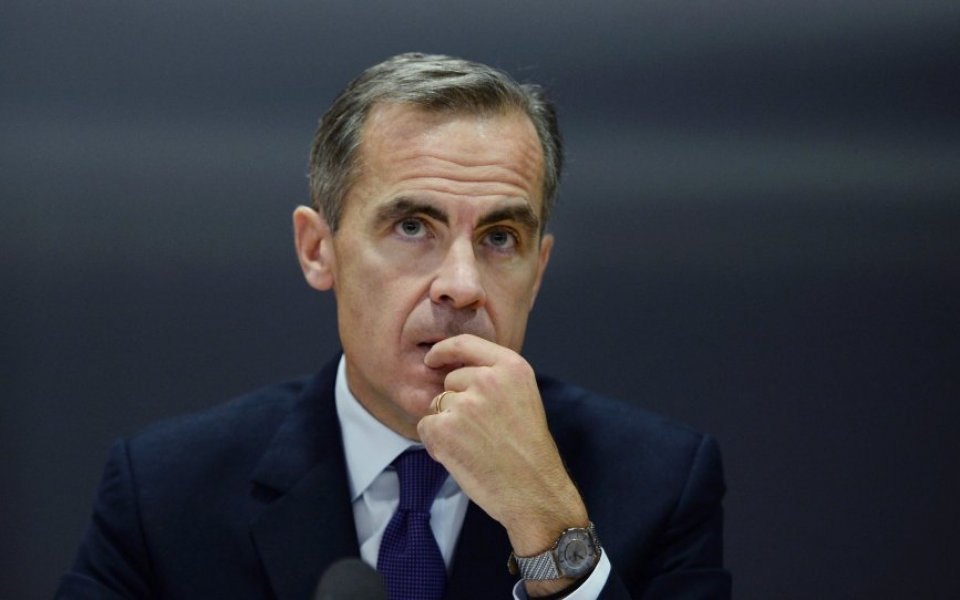Here is the statement from Governor of the Bank of England, Mark Carney, after United Kingdom exit from the European Union.
The people of the United Kingdom have voted to leave the European Union.
Inevitably, there will be a period of uncertainty and adjustment following this result.
There will be no initial change in the way our people can travel, in the way our goods can move or the way our services can be sold.
And it will take some time for the United Kingdom to establish new relationships with Europe and the rest of the world.
Some market and economic volatility can be expected as this process unfolds.
But we are well prepared for this. The Treasury and the Bank of England have engaged in extensive contingency planning and the Chancellor and I have been in close contact, including through the night and this morning.
The Bank will not hesitate to take additional measures as required as those markets adjust and the UK economy moves forward.
Investors King Comment – Stimulus hint?
These adjustments will be supported by a resilient UK financial system – one that the Bank of England has consistently strengthened over the last seven years.
The capital requirements of our largest banks are now ten times higher than before the crisis.
The Bank of England has stress tested them against scenarios more severe than the country currently faces.
As a result of these actions, UK banks have raised over £130bn of capital, and now have more than £600bn of high quality liquid assets.
Investors King Comment – This might be a game changer if businesses respond likewise, lets just hope they are willing to take the risk with potential low consumer spending and a drop in overseas orders.
Why does this matter?
This substantial capital and huge liquidity gives banks the flexibility they need to continue to lend to UK businesses and households, even during challenging times.
Investors King Comment – ECB introduced long term refinancing operation (LTRO) and BOJ announced zero interest funding loans to companies, the only issue, both are yet to materialize, no borrowers. Businesses/manufacturers needs for whom to produce. But with weak exports, forecast to be even lower post Brexit, it is uncertain if this will be effective going forward.
Moreover, as a backstop, and to support the functioning of markets, the Bank of England stands ready to provide more than £250bn of additional funds through its normal facilities.
The Bank of England is also able to provide substantial liquidity in foreign currency, if required.
We expect institutions to draw on this funding if and when appropriate, just as we expect them to draw on their own resources as needed in order to provide credit, to support markets and to supply other financial services to the real economy.
In the coming weeks, the Bank will assess economic conditions and will consider any additional policy responses.
Investors King Comment – We still think this is additional stimulus hint.
In the future we will not hesitate to take any additional measures required to meet our responsibilities as the United Kingdom moves forward.
Conclusion
A few months ago, the Bank judged that the risks around the referendum were the most significant, near-term domestic risks to financial stability.
To mitigate them, the Bank of England has put in place extensive contingency plans.
These begin with ensuring that the core of our financial system is well-capitalised, liquid and strong.
This resilience is backed up by the Bank of England’s liquidity facilities in sterling and foreign currencies.
All these resources will support orderly market functioning in the face of any short-term volatility.
The Bank will continue to consult and cooperate with all relevant domestic and international authorities to ensure that the UK financial system can absorb any stresses and can concentrate on serving the real economy.
That economy will adjust to new trading relationships that will be put in place over time.
It is these public and private decisions that will determine the UK’s long-term economic prospects.
Investors King Comment – The only thing market does best.
The best contribution of the Bank of England to this process is to continue to pursue relentlessly our responsibilities for monetary and financial stability.
These are unchanged.
We have taken all the necessary steps to prepare for today’s events.
Investors King Comment – If there is anything we’ve learnt over the years, is that we can’t prepare enough in today’s financial market. Especially with a series of events that will follow Brexit, David Cameron already announced resignation in coming months. A decision that will not only daunt whatever hope is left, but create huge uncertainties.
In the future we will not hesitate to take any additional measures required to meet our responsibilities as the United Kingdom moves forward.
Investors King Comment – Overall, we believe the U.K. mid-term economic outlook is uncertain and we expect this to continue in 2017 as the country forges a new path from the European Union. Also, inflation and new job creation will be affected, since most European businesses are focusing on strategies to curtail cost or even exit, while dealing with the increase in taxes amid global growth concerns.

 Forex2 weeks ago
Forex2 weeks ago


 Naira2 weeks ago
Naira2 weeks ago
 Naira4 weeks ago
Naira4 weeks ago
 Company News4 weeks ago
Company News4 weeks ago
 Billionaire Watch1 week ago
Billionaire Watch1 week ago




 Naira2 weeks ago
Naira2 weeks ago




 Naira4 weeks ago
Naira4 weeks ago




 Naira1 week ago
Naira1 week ago






















